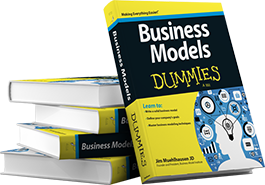Wal-Mart’s Evil Business Model?
There is a large segment of the population who believe Wal-Mart is evil. They kill small retailers to create low paying jobs and the like. However, I read something interesting in The Wal-Mart Effect by Charles Fishman. In this book, Fishman describes how Wal-Mart single-handedly eliminated wasteful packaging of deodorant. During the early 1990s, metal or plastic deodorant containers we packaged in an outer cardboard box. This box served no purpose other than a more attractive package.
In line with their culture to eliminate waste and cost, Wal-Mart took it upon themselves to demand all deodorant manufacturers eliminate the box. The box wasn’t terribly expensive. It cost about a nickel. Aside from sharing the nickel savings with both the consumer and the manufacturer, Wal-Mart saved thousands of trees, thousands of gallons of diesel fuel which would have been wasted transporting the extra weight of the boxes, and mountains of trash from the discarded boxes. Once the manufacturers eliminated the box for Wal-Mart, they eliminated the packaging for all other stores.
If the average adult American (let’s say there are 200 million adult Americans) buys three deodorants per year, then Wal-Mart has single-handedly eliminated 9 billion boxes in the last fifteen years. That’s a lot of trees!
What does this have to do with your company? For years, grocery stores, department stores, and drug stores had simply taken deodorant as it was given to them by the manufacturers. They never thought they could change the status quo and never tried. Wal-Mart extended the boundaries of its core value, lowering prices for consumers, to include all aspects of their business. This evidentially includes getting into the details of your vendor’s business. How can you think creatively to expand your core mission? Are you in a position to dictate terms as Wal-Mart did for the benefit of all involved?











